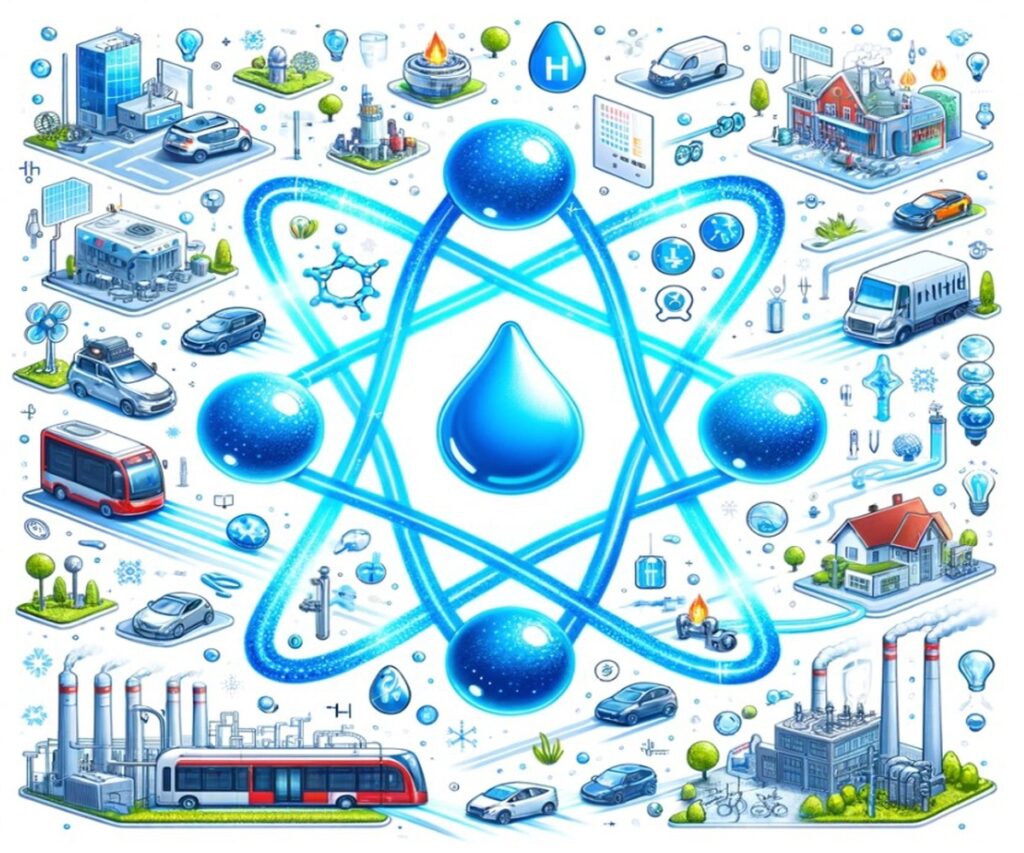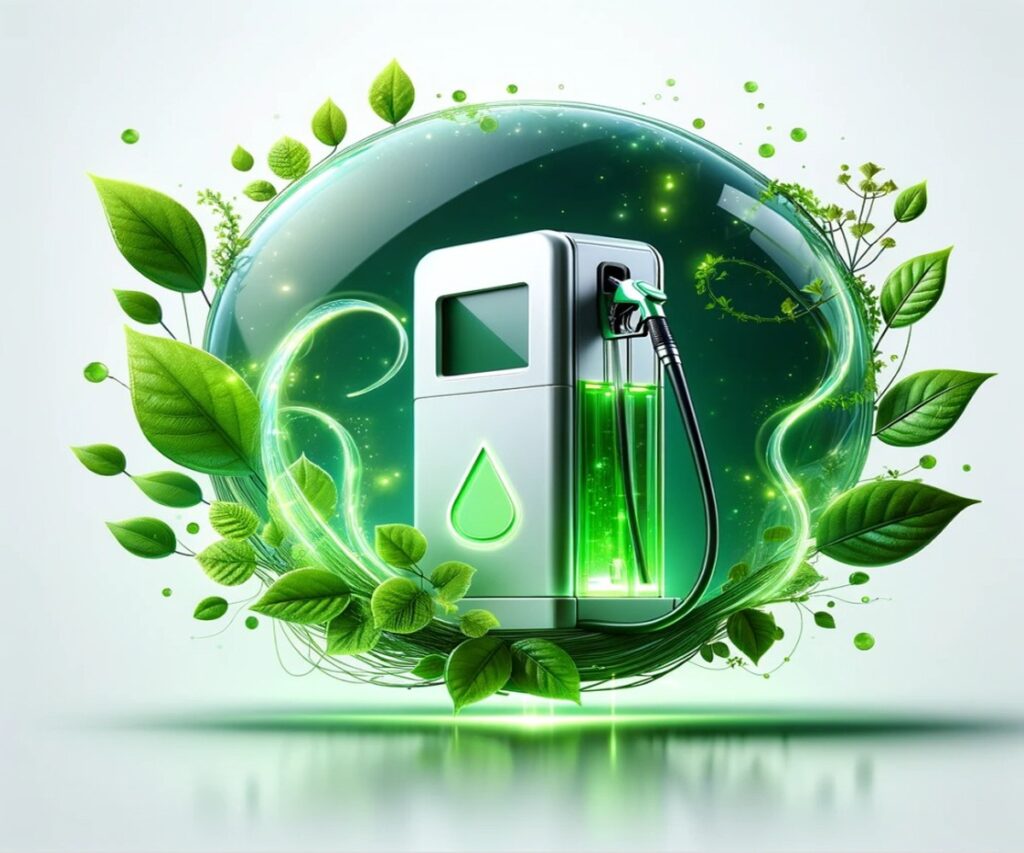
Amidst the global pursuit of sustainable energy solutions, hydrogen energy has emerged as a promising alternative that could revolutionize the way we power our world. As the most abundant element in the universe, hydrogen offers a clean and renewable source of energy that has the potential to replace fossil fuels across various sectors, including transportation, industry, and power generation. The growing momentum towards a hydrogen economy is gathering pace, with nations across the globe recognizing the immense potential of this sustainable energy source and actively pursuing strategies to embrace it.
The Growing Momentum Towards a Hydrogen Economy
Countries around the globe have recognized the immense potential of hydrogen energy and are actively pursuing strategies to embrace this sustainable energy source. South Korea, a trailblazer in the hydrogen economy, unveiled a comprehensive roadmap in 2019 aimed at achieving an economic impact of 43 trillion won per year by 2040. This ambitious plan includes the production of 6.2 million hydrogen fuel cell vehicles, the construction of 1,200 hydrogen charging stations, and the enactment of the world’s first hydrogen law in 2020. South Korea’s commitment to hydrogen technologies and infrastructure signifies its determination to embrace a sustainable and carbon-neutral future.
Japan, another frontrunner in the hydrogen revolution, announced its hydrogen basic strategy in 2017, setting a target of achieving carbon neutrality by 2050. The Japanese government and private companies are investing heavily in expanding the hydrogen charging station network and diversifying the lineup of hydrogen fuel cell vehicles, demonstrating their commitment to a greener future. Japan’s proactive approach demonstrates its recognition of hydrogen’s potential in addressing climate change and achieving long-term sustainability.
The United States, although initially lagging behind, has also accelerated its efforts in recent years. In 2020, the U.S. government launched a hydrogen program aimed at leading the development of the hydrogen economy. This includes establishing a network of hydrogen charging stations, providing incentives for the purchase of hydrogen fuel cell vehicles, and supporting the construction of hydrogen infrastructure. Additionally, the government’s commitment to supporting hydrogen infrastructure construction and the development of cost-effective clean hydrogen demonstrates a positive shift towards embracing this alternative energy source.

The European Union (EU) has also recognized the potential of hydrogen and has unveiled plans to expand its use across industries. In 2020, the EU unveiled its hydrogen economy strategy and agreed to establish a European hydrogen bank in 2022. Furthermore, hydrogen is included in the EU’s carbon border tax, scheduled for implementation by the end of 2025, further solidifying the region’s commitment to a sustainable energy transition. These initiatives reflect the EU’s commitment to fostering a sustainable energy transition and reducing carbon emissions.
Overcoming Challenges: Hydrogen Energy Production and Infrastructure
While the enthusiasm for the hydrogen economy is palpable, there are significant challenges that need to be addressed. One of the primary challenges lies in the production method of hydrogen. Currently, most hydrogen is produced from natural gas, known as grey hydrogen, which is neither renewable nor carbon-neutral. To truly unlock the potential of hydrogen energy as a sustainable energy source, it is crucial to develop hydrogen produced from renewable resources such as solar and wind power (green hydrogen) and hydrogen produced by capturing carbon dioxide (blue hydrogen).
Another challenge revolves around the infrastructure required for hydrogen storage and transportation. Establishing a network of hydrogen filling stations incurs higher costs compared to conventional gasoline and diesel stations. Furthermore, the construction of dedicated pipelines for hydrogen transportation is expensive due to the low energy density of hydrogen. However, ongoing research is focused on reducing costs by integrating hydrogen into existing natural gas pipelines, making the storage and transportation of hydrogen more practical and cost-effective. These efforts aim to make the storage and transportation of hydrogen more practical and cost-effective, paving the way for wider adoption and integration of hydrogen into the energy landscape.

The Promise of Hydrogen: A Viable Alternative to Fossil Fuels
Despite the challenges, the hydrogen energy economy holds great promise as a viable alternative to fossil fuels. As the world transitions towards sustainable energy solutions, hydrogen energy’s potential shines through, particularly in applications where electrification is challenging. Hydrogen energy offers a clean, versatile, and reliable energy source that can be used to power various sectors, from transportation to industrial processes, without the harmful emissions associated with fossil fuels.
The development of hydrogen energy infrastructure is crucial for its widespread adoption. This includes the production, storage, and distribution of hydrogen energy. Various methods of hydrogen energy production, such as electrolysis and steam reforming, can be employed to meet the growing demand for this clean energy source. Additionally, the transportation and storage of hydrogen energy pose unique challenges that need to be addressed through innovative solutions.
Hydrogen energy can play a significant role in decarbonizing the transportation sector. Fuel cell vehicles, which use hydrogen energy as a fuel source, emit only water vapor, making them an attractive option for reducing greenhouse gas emissions from the transportation industry. The use of hydrogen energy in heavy-duty vehicles, such as trucks and buses, is particularly promising due to the challenges associated with electrifying these vehicles.
Furthermore, hydrogen energy can be utilized in industrial processes, such as steel production and chemical manufacturing, where high temperatures are required. By replacing fossil fuels with hydrogen energy in these processes, industries can significantly reduce their carbon footprint and contribute to a more sustainable future.
However, it is essential to accelerate the development of clean hydrogen energy production projects and expand the demand for hydrogen energy based on market needs, in addition to government regulations. Collaboration between governments, industries, and research institutions is crucial to overcoming the obstacles and realizing the full potential of the hydrogen energy economy. By investing in research and development, optimizing production processes, and establishing a robust supply chain, hydrogen energy can become a commercially viable and environmentally friendly choice for the energy sector.
The path towards a sustainable energy future is paved with challenges, but the rewards are immense. Hydrogen energy offers a clean, renewable, and versatile energy source that could significantly reduce our reliance on fossil fuels and mitigate the impact of climate change. As nations worldwide embrace the hydrogen energy economy, we move closer to a future where energy is abundant, affordable, and environmentally responsible.
Embracing the Future of Sustainable Energy
In the quest for a sustainable energy future, hydrogen stands as a beacon of hope, illuminating the way towards a cleaner, greener, and more resilient world. By harnessing the power of this abundant element, we can unlock a world of possibilities and pave the way for generations to come. The transition to a hydrogen-powered future will require a collective effort from governments, industries, and individuals alike, but the potential rewards are immeasurable.
Imagine a world where transportation is powered by clean, emission-free hydrogen fuel cells, where industries operate on renewable energy sources, and where our carbon footprint is minimized without compromising our energy needs. This vision is within reach, and the hydrogen economy is the key to unlocking this sustainable future.
As we continue to grapple with the challenges of climate change and energy security, it is imperative that we embrace innovative solutions like hydrogen. By investing in research, developing robust infrastructure, and fostering international collaboration, we can accelerate the transition towards a hydrogen-powered world and secure a cleaner, greener, and more prosperous future for generations to come.
The time to act is now. Every step we take towards embracing the hydrogen economy brings us closer to a sustainable energy future. Let us harness the potential of this remarkable element and embark on a journey towards a world where energy is abundant, clean, and accessible to all.
※ This report has been compiled for the purpose of providing general information. It is based on data gathered by CHEMiFORGE. Should you have any inquiries or need to make decisions based on this report, it is advisable to consult with a CHEMiFORGE.


